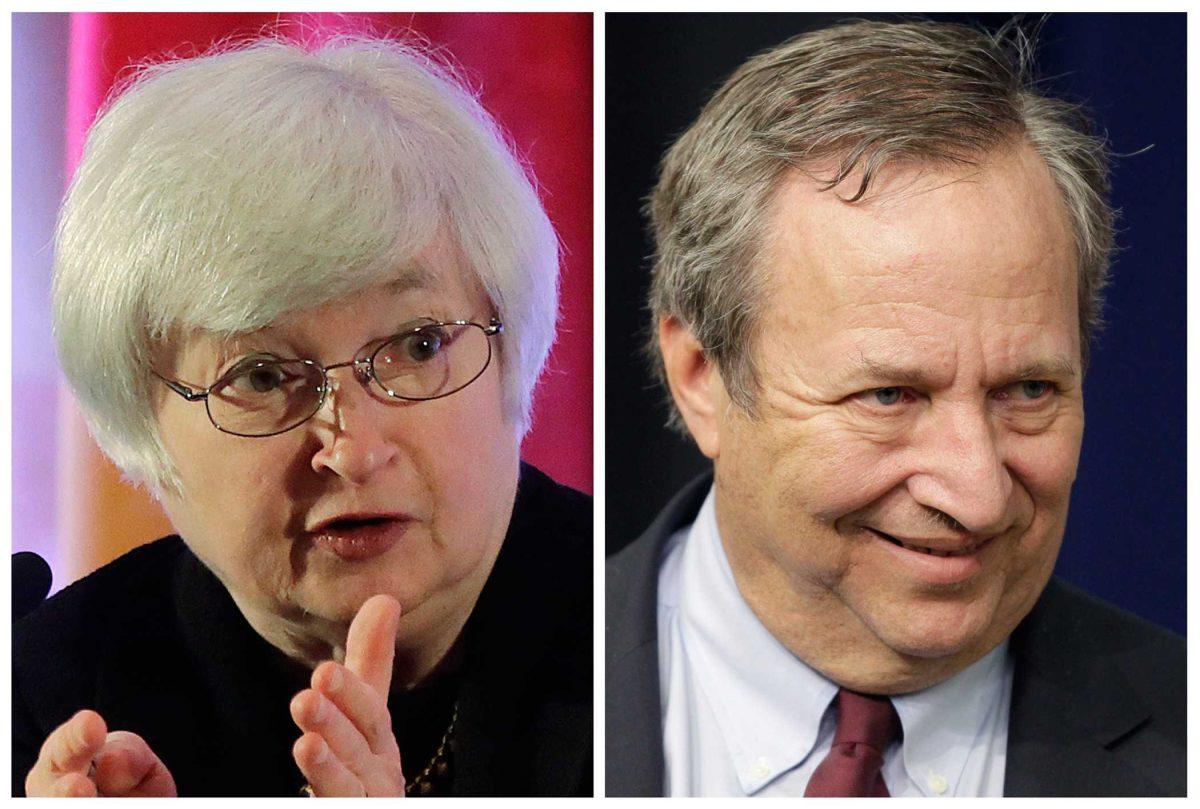President Obama’s replacement for current Federal Reserve Chairman Ben Bernake will likely be one of the most contentious and important economic decisions of his presidency. Should it be former Secretary of the Treasury Lawrence Summers? Or Vice Chairwoman of the Fed Board of Governors Janet Yellen?
But the more relevant question is this: Why should University students care about who will be running the world’s most powerful central bank for the next four years?
Perhaps, though, we should go even a bit more fundamental.
What role does the Fed play in impacting our day-to-day economic well-being?
Founded in 1913, the Fed normally takes responsibility for our nation’s short-term economic goals by influencing the direction of interest rates in order to control our money supply.
The Fed controls our money supply primarily through the buying and selling of government securities, such as treasury bills, in its open market operations.
When our economy is experiencing slow growth, the Fed buys government securities, which increases the money supply.
For those who haven’t taken an economics course, the money supply is basically the total money in circulation in a country.
These purchases, in turn, lower interest rates, which spur economic development and normally cause inflation to rise. The opposite occurs when the Fed sells government securities.
To really gain a comprehensive understanding how the Fed shapes our nation’s economic conditions, it is most insightful to see how the central bank behaved in reaction to the 2008 financial crisis that weakened our economy so severely.
First and foremost, under the guidance of Bernanke, the Fed bailed out a handful of large banks at the climax of the crisis, thereby stabilizing credit markets and preventing a complete collapse of the US economy.
What would have happened had the Bernanke Fed not bailed out, say, Bank of America or American International Group (AIG)?
Well, according to most economists and finance experts, likely every major U.S. bank would have gone bankrupt.
This means that instead of unemployment spiking at 10 percent, it would have increased to around 25 percent. Also, most major Fortune 100 companies would have gone bankrupt, or had to drastically scale back operations.
If you think graduating in a job market with around 7 percent unemployment is more palatable than 25 percent, you can thank the Fed for bestowing better fortune unto you than your grandparents during the Great Depression.
Second, over the next 5 years, the Bernanke Fed maintained
short-term interest rates near zero, and, for the purpose of lowering long-term rates, purchased vast amounts of long-term debt and
mortgage-backed securities.
The goal behind these purchases was to prop up the labor market by driving down the cost of borrowing.
It’s simple Econ 101: Firms are more likely to purchase equipment and hire workers when they can do so cheaply.
The Fed’s efforts have been an undeniable success.
While Congress has done nothing, the Fed has been the most instrumental force in our economy, lowering unemployment from 10 percent to 7.4 percent, while also keeping the inflation rate low.
As students, we presumably have a vested interest in how robust the nation’s economy is when we graduate.
While Obama won’t announce his nomination for the top spot until later this fall, the candidate most likely to follow in Bernanke’s footsteps — focusing on maximizing employment by maintaining low interest rates — is Janet Yellen.
From 2004-2010, Yellen was President of the San Francisco Federal Reserve District, and she is now the second-ranking official under Bernanke at our central bank.
Indeed, Yellen would be a mirror image of Bernanke, correctly putting employment at the top of her agenda, thereby temporarily putting inflation concerns on the backburner.
Summers, on the other hand, wouldn’t be so partial to fostering an environment that is conducive for hiring.
In fact, Summers has been quite outspoken in criticizing the Fed’s bond purchases, warning that it could negatively affect financial markets.
As a result, most investors believe he is likely to end the Fed’s efforts to stimulate our economy much more quickly than Yellen, which probably means a less favorable hiring environment.
Yellen is Bernanke 2.0, someone who is willing to take flak from politicians railing against the evils of inflation, in the interest of taking as much action as necessary until a noticeably positive effect is made on unemployment and growth.
Put simply, Yellen is the candidate more in tune with increasing University students’ bottom line.
Opinion: Obama should tap Yellen for next Fed Chairman
By Jay Meyers
September 5, 2013
This photo combo shows Fed Vice Chair Janet Yellen, left, and former Treasury Secretary Lawrence Summers. Summers is the White House insider with a direct line to President Barack Obama. Yellen is the Federal Reserve veteran with a long list of congressional patrons. The two Ivy League trained economists have emerged as leading contenders to replace Ben Bernanke as chairman of the Fed, the nation’s central bank. Obama could announce his nominee in the coming weeks. (AP Photo/Eugene Hoshiko, J. Scott Applewhite)








